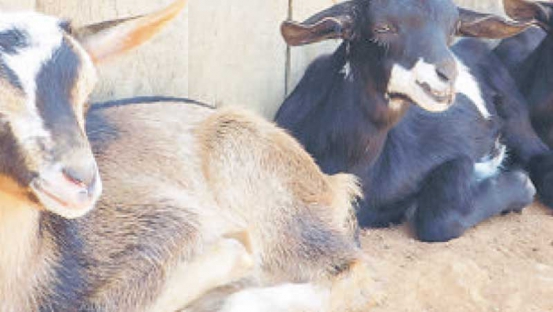×
The Standard e-Paper
Stay Informed, Even Offline

Two years ago, Anne Wanjiru bought a ‘barren’ goat, prayed over it and took good care of it, now it gives birth to four kids every year, to the amusement of neighbours
The dream of many aspiring livestock farmers is to keep dairy cows, but this is a costly venture given that cattle are delicate creatures.